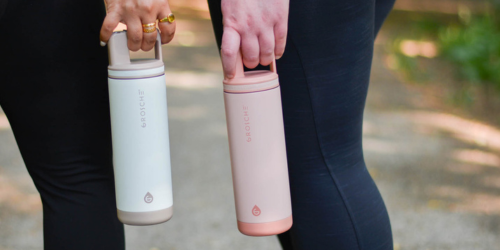Whether you're a casual drinker or a passionate coffee enthusiast, Moka Pot Espresso Makers can transform how you brew at home. They're stunning, affordable, and supply rich, cafe-worthy espresso, making them an integral tool for your little at-home barista. However, appropriate maintenance is vital to keeping that delicious flavor intact. If you're wondering how to clean a moka pot effectively without damaging it or affecting the taste of your coffee, you've come to the right place.
In this article, we'll walk you through the cleaning process step-by-step, share expert tips, and help you avoid common mistakes that could ruin your brew.

Why Knowing How to Clean a Moka Pot Matters
Understanding how to clean a moka pot is the key to preserving the delicious taste of your coffee and ensuring your pot remains in great shape for years to come! Over time, coffee oils and mineral deposits can build up inside the moka pot, leading to harsh flavours, clogging, and even corrosion if not appropriately handled. Keeping your moka pot clean helps improve the taste of your coffee and extends the life of your brewing tool.
Daily Cleaning: Simple Steps After Each Use
The good news is that cleaning a Moka pot doesn't require fancy tools or harsh chemicals. Here's how to clean a moka pot after every use:
Step One: Disassemble the Moka Pot
Let it cool, then separate the top chamber, the filter basket, and the bottom chamber.
Step Two: Rinse with Warm Water
Rinse all parts thoroughly with warm water. Avoid using soap, as it could leave residues affecting your coffee's taste.
Step Three: Remove Coffee Grounds

Tap out used grounds from the filter basket and rinse them well. Check for leftover grounds in the seal and gently remove them.
Step Four: Dry Completely
Use a soft cloth to dry all parts thoroughly, or let them air dry separately to prevent moisture buildup and mold.
Deep Cleaning: How to Clean a Moka Pot Monthly
If you're a frequent user, you should do a more thorough cleaning once a month. Here's how to clean a moka pot deeply without damaging the components:
- Soak in Vinegar Solution
Mix equal parts water and white vinegar. Soak the bottom chamber and filter parts (not the rubber gasket) for 15–20 minutes to remove mineral deposits.
Scrub Gently
Use a soft brush or an old toothbrush to scrub away buildup. Avoid abrasive sponges, as they can scratch the metal.
Rinse Thoroughly
Rinse every part under running water to delete the vinegar residue.
Boil a Water Cycle
After reassembling, run a complete brew cycle with just water (no coffee) to flush out any lingering flavors.
How to Clean a Moka Pot Before First Use
Before brewing your first cup, it's important to understand how to clean a moka pot before first use to remove any manufacturing residues such as oils, dust, or metal particles. Follow these steps to ensure your Moka pot is ready for brewing:
Disassemble the Pot
Separate the top chamber, filter basket, and bottom water chamber.
Wash with Mild Soap and Warm Water
This is the one exception where a gentle dish soap can be used. Wash all parts thoroughly using a soft sponge. Rinse well to remove all soap traces.
Boil a Cycle Without Coffee
Fill the bottom chamber with water, assemble the pot, and run one or two complete brew cycles without adding coffee. This helps remove any lingering metallic taste or residue.
Dry Completely
Disassemble the pot and let all parts air dry completely before storing or using it again.
By following these steps, you can be sure that your first cup is clean, safe, and free from any off-putting flavours.
Check out our premium stovetop moka pots.
Common Mistakes to Avoid When Cleaning a Moka Pot
When learning how to clean a moka pot, it's equally important to know what not to do:
Don't use dish soap on aluminum Moka pots, as it can affect the patina and the coffee's flavor.
Never put your Moka pot in the dishwasher unless it's specifically labelled dishwasher-safe (most are not).
Don't neglect the rubber gasket, which can trap old coffee oils and create unpleasant flavors.
Additional Tips to Keep Your Moka Pot in Top Shape
Inspect the rubber gasket regularly and replace it if it's cracked or brittle.
Use filtered water to minimize mineral buildup.
- Store it disassembled so all parts stay dry and mold-free.
Conclusion: How to Clean a Moka Pot for Better Brews
Knowing how to clean a moka pot is key to tasting delightful coffee every time! By embracing daily cleaning routines and adding monthly deep cleans, you'll enhance your brew's flavour and maintain your pot's longevity. Happy brewing!
HOW TO MAKE AN AFFOGATO WITH A MOKA POT
This delicious recipe uses a shot of espresso and ice cream to give you a rich, creamy dessert that will satisfy both your dessert and coffee craving. Heck, why not have it for breakfast!



Leave a comment
This site is protected by hCaptcha and the hCaptcha Privacy Policy and Terms of Service apply.